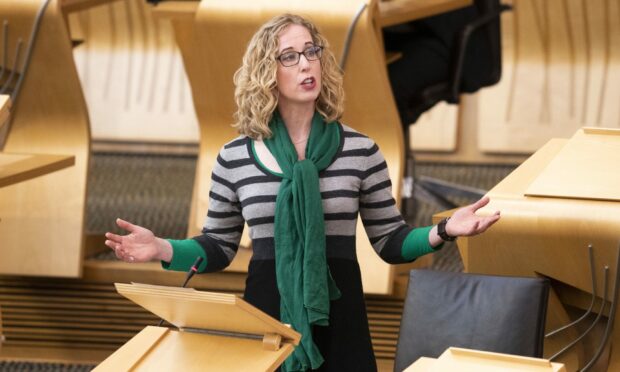Humza Yousaf announced a major reset to his government’s agenda this week as he put the brakes on a number of flagship policies, including the controversial bottle deposit return scheme.
Now delayed until next March, the plan is seen by critics as a clear example of mismanagement and wasted time and money.
Furious drinks industry chiefs now warn the costs incurred by businesses forced to take part in the scheme are already “impossible to calculate”.
Why has the scheme sparked so much anger?
The deposit return scheme – on a surface level – sounds like a well-intentioned policy aimed at improving recycling rates to help the environment.
Customers pay an extra 20p when they buy drinks in single-use containers. They then earn their money back by taking their empty can, bottle or glass to designated return points across Scotland.
But many businesses warn the scheme is poorly designed, hits smaller drinks companies disproportionately and will force them to put up prices in a cost-of-living crisis.
Industry bosses also claim the scheme – which has been steered through Holyrood by the Greens – will create trade barriers with the rest of the UK once regulations are different.
Critics of the policy say it will lead to some drinks firms failing completely and may drive investment out of Scotland.
What do industry leaders say?
Whisky consultant Blair Bowman is a vocal critic of the recycling initiative and has rallied opposition to the scheme in its current form.
He told us: “The current situation is undoubtedly chaotic, with high levels of uncertainty resulting in significant wastage of time, money, and resources for businesses.
“The magnitude of this mess has grown to a point where it is impossible to calculate the total wasted costs incurred.”
Nigel Tiddy, who runs Moray-based Windswept Brewery, said he was “frustrated” it had taken so long for the SNP and Greens to announce the delay given the scale of anger.
In Orkney, drinks shop owner Duncan McLean, says: “The uncertainty was very frustrating, especially as the scheme was so obviously not fit to be launched in August.”
The anger was echoed by Frank Murphy, who owns The Pot Still whisky pub in Glasgow.
He told us: “There’s a feeling in the trade that the administration up until now has been anti-alcohol and anti-hospitality.”
He said the launch date was a particularly bad time for the scheme to kick off.
He continued: “Starting it in the middle of the Edinburgh Festival was stupid. I have no idea what muppet thought that date up.”
Why is the scheme being delayed?
Scottish Greens co-leader Lorna Slater, who has overseen the scheme, blamed the UK Government for the delay.
Previously she insisted “no one with any credibility” would hold back the recycling initiative from going live in August.
But she has claimed Westminster is responsible for the delay by refusing to exempt Holyrood from trading laws created after Brexit.
That’s despite Ms Slater also announcing several changes to how the scheme will look due to repeated complaints from smaller businesses.
Mr Bowman rubbished her claims. He said: “It is absolutely nonsensical for Lorna Slater to try to blame the UK Government for the delay.”
A UK Government source said: “Lorna Slater is only embarrassing herself further by making these laughable claims. This is a mess entirely of her own making.”
Some critics have said Holyrood should simply align with Westminster’s version of the scheme – due to launch in 2025 – to avoid extra work for businesses north and south of the border.
Highland SNP rebel Fergus Ewing has slated the scheme, previously warning it threatened to descend into “catastrophe”.
Following the latest delay, the Inverness and Nairn MSP labelled the scheme “broken” and “defective”, and insisted Holyrood should simply align with the UK Government’s scheme.
Can this disaster be salvaged?
Ms Slater estimates £300 million has already been spent on the delayed recycling initiative.
Drinks firms have dedicated months figuring out how they can make the scheme work for them and have spent money preparing.
Lossiemouth brewery boss Mr Tiddy reckons he has spent £2,000 between making the necessary preparations and obtaining legal advice.
But many businesses support the environmental principles which underpin the scheme and say they are happy to participate if its flaws are fixed.
Stephen Kemp, who runs an Orkney gin distillery, said: “Had the delay not been announced, we’d still have been unable to participate, simply because the scheme as proposed is so fundamentally flawed.
“I expect that over the coming year, the Scottish Government will have to entirely rethink the launch of the scheme.”
Businessman Mr McLean told us: “Everyone in the industry I talk to is 100% in favour of increasing recycling, but 0% of them think the deposit return scheme as currently formulated is a workable way to achieve that.”






Conversation